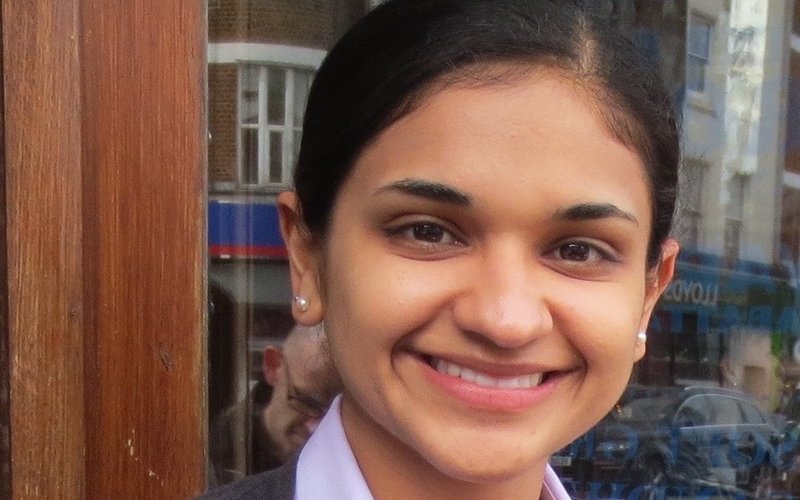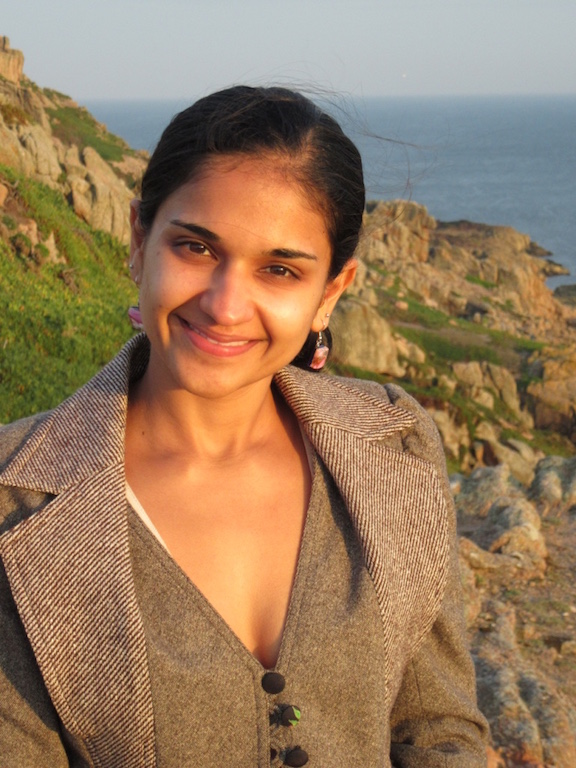
Aditi Vedi on what motivates her to study children's oncology.
Every child touches your heart and you do not forget any of them.
An 11-year-old patient was the motivation for Aditi Vedi to specialise in paediatric oncology. “Everyone loved her. She was always smiling, despite being covered in bruises because her bone marrow wasn’t working. No matter what adversity threw at her she kept smiling. She had acute myeloid leukaemia, but she didn’t respond to several lines of chemotherapy and that meant her chances of survival were small. I will never forget how vibrant she was. We tried to the very last day to fight her disease. She was very inspirational.”
She adds: “Every child touches your heart and you do not forget any of them.”
She recalls another patient who she first met as a junior doctor in oncology in Australia. He was 10 years old at the time and had been very unwell. His bone marrow had failed due to a rare bone marrow failure syndrome. He underwent a bone marrow transplant with intensive chemotherapy and stem cells from a donor. “He was very unwell on several occasions and now, five years on, he is playing rugby for his school team. He reminds us of the motivation behind our research and clinical work,” says Aditi, who will begin a PhD in Medical Science next Easter.
At Cambridge she will be studying normal blood stem cells and their behaviour under normal and stress conditions. She will then apply this knowledge to leukaemia stem cells, to study the genetic drivers and transcription factors involved in their evolution to disease, with the aim of targeting these factors to prevent progression of the disease.
No-one in Aditi’s immediate family has been a doctor and she very nearly followed her father into engineering instead of doing medicine. Her family moved from Delhi to Australia when she was 10 because her parents wanted to give her and her younger sister better education opportunities. Aditi found this difficult initially, but says her recent move to the UK is for similar reasons so she appreciates more why her parents made that decision now.
“It was quite emotionally challenging at the time for the whole family,” she says. “We moved with just a couple of suitcases and my parents had to establish themselves all over again. We left friends and family behind and had to learn a new system and culture. It was a difficult time for all of us.”
The family moved to Melbourne initially where Aditi’s father had friends. After a month her father found work in Sydney and the family moved again. Her father had worked as an engineer in the printing industry for the Times of India, but had to work his way up the ladder all over again in Australia. Aditi says he worked hard and quite quickly regained the managerial level he had when he left India. Her mother, who is an architect, took almost three years to find work in her vocation in Australia and did a masters course and voluntary work over that period. She now works for the Department of Housing designing houses for the disabled.
Aditi was almost finished her primary education when she left India in 1993 and was an A grade student at the time. In Australia she attended her local primary school until a teacher suggested she be put forward for a high school which selected on academic ability. She sat the entrance exam and was accepted . This was a critical point for the family, who now felt their immigration to Australia had been worthwhile.
Aditi did extra studies after school and excelled at sciences. She was also a strong swimmer and competed in national championships.
Children's oncology
She always knew she wanted to go to university, but wasn’t sure what to study and applied for engineering scholarships. She got a very high score in her final exams though, making it possible for her to consider medicine at the University of New South Wales. She didn’t make her choice until the final moment, but has no regrets now.
She finished her degree in 2007 then did two years in general medicine, but spent most of the last year doing rotations in paediatrics and obstetrics and gynaecology. She already knew she wanted to do paediatrics. She loved working with children and in her second and third year of university she had worked as a swimming teacher for pre-school children. In 2010 she began her specialist training in paediatrics and after three years started to further sub-specialise in paediatric oncology.
Aditi met her husband, Brent O'Carrigan, in the third year of her medical degree and the two have been a strong pair since. They motivated each other throughout medical school, supported each other through their junior doctor years and encouraged each other to excel in their medical specialist training and examinations. Brent was awarded the Royal Australian College of Physicians medal for the highest achievement throughout Australia and New Zealand in these specialist examinations. Without the support of each other, Aditi says neither would have achieved their current level of academic success.
Aditi was initially drawn to paediatric oncology in part due to the fast pace of research in the field.
Over the next few years she developed a passion for this area of medicine.
She describes the atmosphere in the oncology ward as bursting with life. “It is like any other children’s playroom. There is so much fun. Although the children have many signs that they are being treated for cancer, if you spend time with them you can easily forget this because they are still vibrant, playful and inspiring little people. These children have a lot to teach us,” she says.
Aditi’s husband is an Irish citizen and suggested the couple apply to universities outside of Australia to continue their studies and gain experience from world class universities which they could bring back to their home country.
Aditi applied to the Royal Marsden Hospital in London initially for a year, so she could settle in the UK before she started her studies. She is working on early phase trials, testing new drugs that have not been trialled in children before.
After visiting the UK twice and meeting various researchers, both she and her husband applied to Cambridge, where he established a PhD project with Prof Carlos Caldas in breast cancer genomics, and Aditi with Professor Berthold Gottgens in leukaemia stem cells.
Aditi admits it is a big step returning to student life after several years of clinical salary. “I felt I couldn’t do the research justice if I did it alongside my clinical work,” says Aditi. “I want to immerse myself in the research and step away from clinical medicine briefly.”
Her ultimate aim is to return to Australia with her husband and set up her own research group, with a balanced clinical workload alongside. “Clinical medicine and laboratory research compliment each other,” she says. “The children we treat provide us with the motivation to continue rigorous scientific research to find durable cures for children with cancer, whilst minimising the side effects and burden that current treatments entail.”

Aditi Vedi
- Alumni
- Australia
- 2015 PhD Haematology
- Trinity College
Children have an innate ability to bring joy to and captivate those around them with their vitality and innocence. My passion for paediatric health and welfare stems from their resilience and eternal optimism - improving the lives of children is my core belief and central motivation for paediatric oncology. I derive my childhood and education from Australia, cultural heritage from India and passion for children’s healthcare and equity of access from both. I graduated with a Bachelor of Science, Medicine and Surgery from the University of New South Wales, and Masters in Medicine from the University of Sydney. Currently I am a clinical fellow with the Royal Marsden NHS Foundation Trust, developing new treatments for refractory cancers, having previously trained in paediatrics and haematology/oncology with Sydney Children’s Hospital. My research in Cambridge will focus on childhood leukaemia, and explore the role quiescent cancer stem cells play in refractory and relapsed disease. My greater goal is to continue paediatric stem cell research in Australia as a clinician scientist.
Previous Education
University of Sydney
University of New South Wales












